Beach Resort A 'Ghost Town' As Cyprus Tourism Hit By Virus Crisis
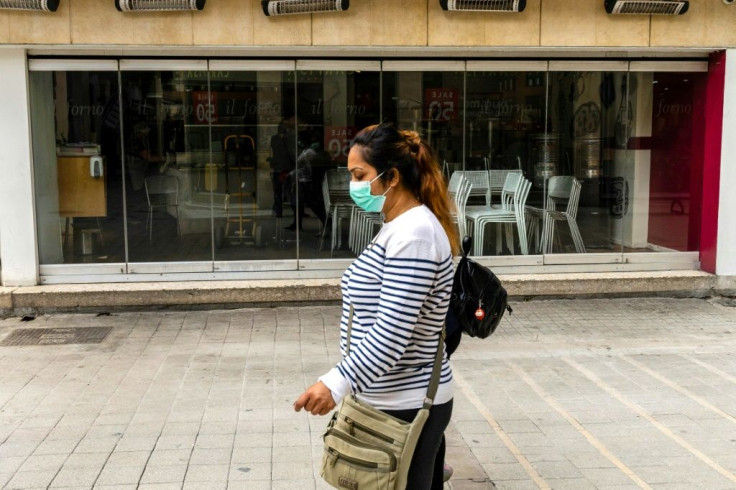
On a Cyprus hotel reception desk, health questionnaires on the coronavirus sit mostly untouched near a bottle of hand sanitizer.
There is hardly a guest left as tourism has all but collapsed on the Mediterranean island.
From this week the sector will shut down completely as hotels have been ordered closed for a month, along with restaurants, cafes and other businesses on the divided island that has reported 39 cases of the COVID-19 illness.
"This year, I think everything is lost," said Diana Kontou, manager of the Hotel Opera, located near the church of St Lazarus, a historical landmark in the southern seaside resort of Larnaca.
Kontou said she had been in the tourism industry for around 20 years and never seen anything like it.
Occupancy this time of year is usually at 80 percent or more, she said, but the cancellations slowly "started from February" and peaked a week ago.
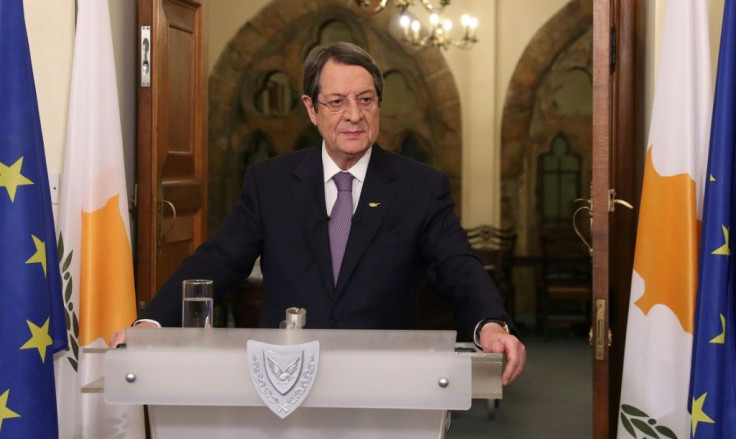
Reservations had all but evaporated for March, April and May, and two staff members had been sent home for lack of work, she told AFP on Sunday.
Later the same day, the government said hotels would be closed until April 30, though existing guests would be allowed to stay for another six days.
President Nicos Anastasiades also said Cyprus would extend entry restrictions, requiring arrivals to carry a medical certificate showing they have tested negative for the virus, and then placing them into 14-day compulsory quarantine.
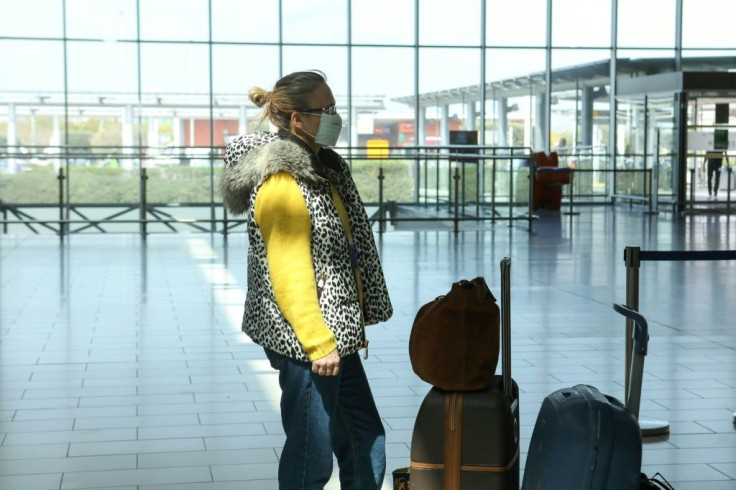
The EU member is divided between the Republic of Cyprus and a northern third controlled by the breakaway Turkish Republic of Northern Cyprus, which is recognised only by Ankara.
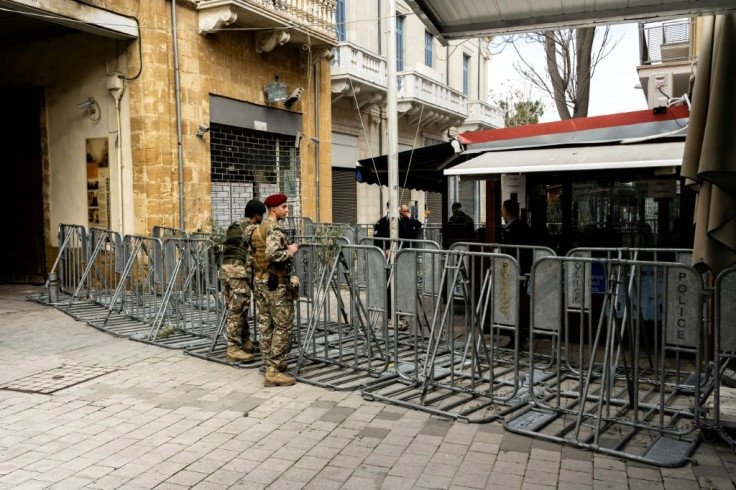
Cyprus had reported 39 novel coronavirus cases by Monday -- including six in the north and two British service personnel stationed on a military base that is part of the UK's sovereign territory.
All of the island is heavily dependent on tourism, and in the Republic of Cyprus arrivals hit a record of nearly four million last year.
Cyprus has benefited from its reputation as a regional safe haven as political unrest has hit the tourism sectors of its traditional competitors Egypt, Tunisia and Turkey.
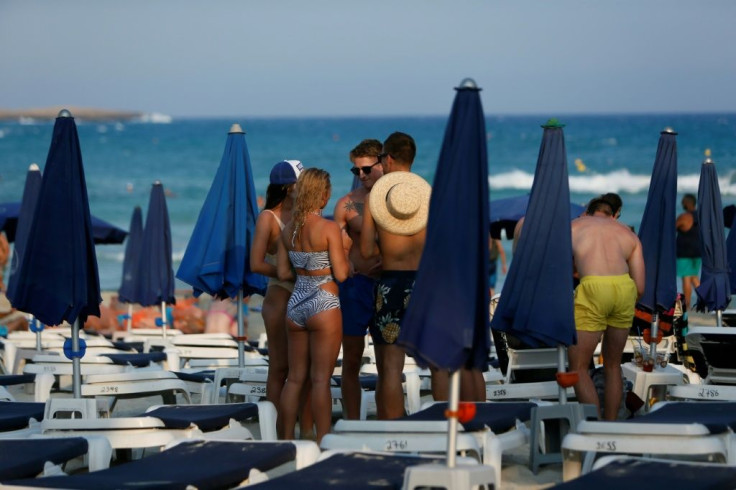
The tourism boom helped it to return to robust GDP growth after it was forced to agree a painful bailout from international lenders in 2013 to rescue its crumbling economy and insolvent banks.
But now, as elsewhere, the coronavirus crisis is taking a heavy toll on the tourism and hospitality sector.
Last week, the head of the Cyprus Hotel Association told local media that the developments had hit March reservations hard and that the month was effectively a write-off.
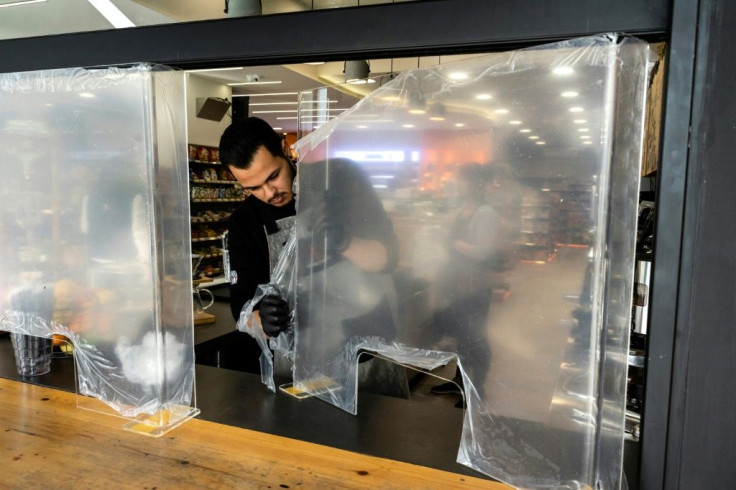
Now hoteliers and other businesses fear worse to come.
Along Larnaca's main Finikoudes beach, small groups of tourists were cautiously venturing out to enjoy the sun, while restaurants and cafes were still open for business.
Joshua Mizrahi from north London was sitting at a seaside kiosk having a drink.
He said he had arrived on Thursday -- a day before Cyprus announced a 15-day ban on entry to non-residents, with limited exceptions, and before northern Cyprus announced similar restrictions on Saturday.
"When we first arrived in the airport we got our temperature checked, so it was quite scary," the 28-year-old said.
He described Larnaca as "a bit of a ghost town" but added cheerfully that "at least the sun is out".
Others were less upbeat.
"We were led to believe that things wouldn't be shutting down quite as quickly in Cyprus, so we went to the north -- but everything unravelled" fast, said Australian David Perkins, 63, who arrived days earlier from Malta.
Tourists who had been visiting across the UN-monitored divide said that they found themselves scrambling to cross back to the south after Cyprus announced its movement restrictions on Friday.
"The tour company has effectively ditched us now," Perkins said.
"We're just entertaining ourselves for the next few days, with of course most places closed down in this town, so we're finding there's very little to do."
A fellow Australian, Susan, 60, became emotional as she reflected on the way things had gone.
"I had saved up for this trip for a year, so for me personally it's quite heartbreaking," she said, fighting back tears.
At Larnaca airport on Sunday, people leaving Cyprus lined up for check-in, some wearing masks.
A 56-year-old Russian tourist who declined to be named told AFP she had decided to end her holiday a week early because she was worried about not being able to get home.
"I love to visit Cyprus every year, it's a lovely place," she said. "As soon as it all will be finished, I will surely come back."
© Copyright AFP {{Year}}. All rights reserved.





















